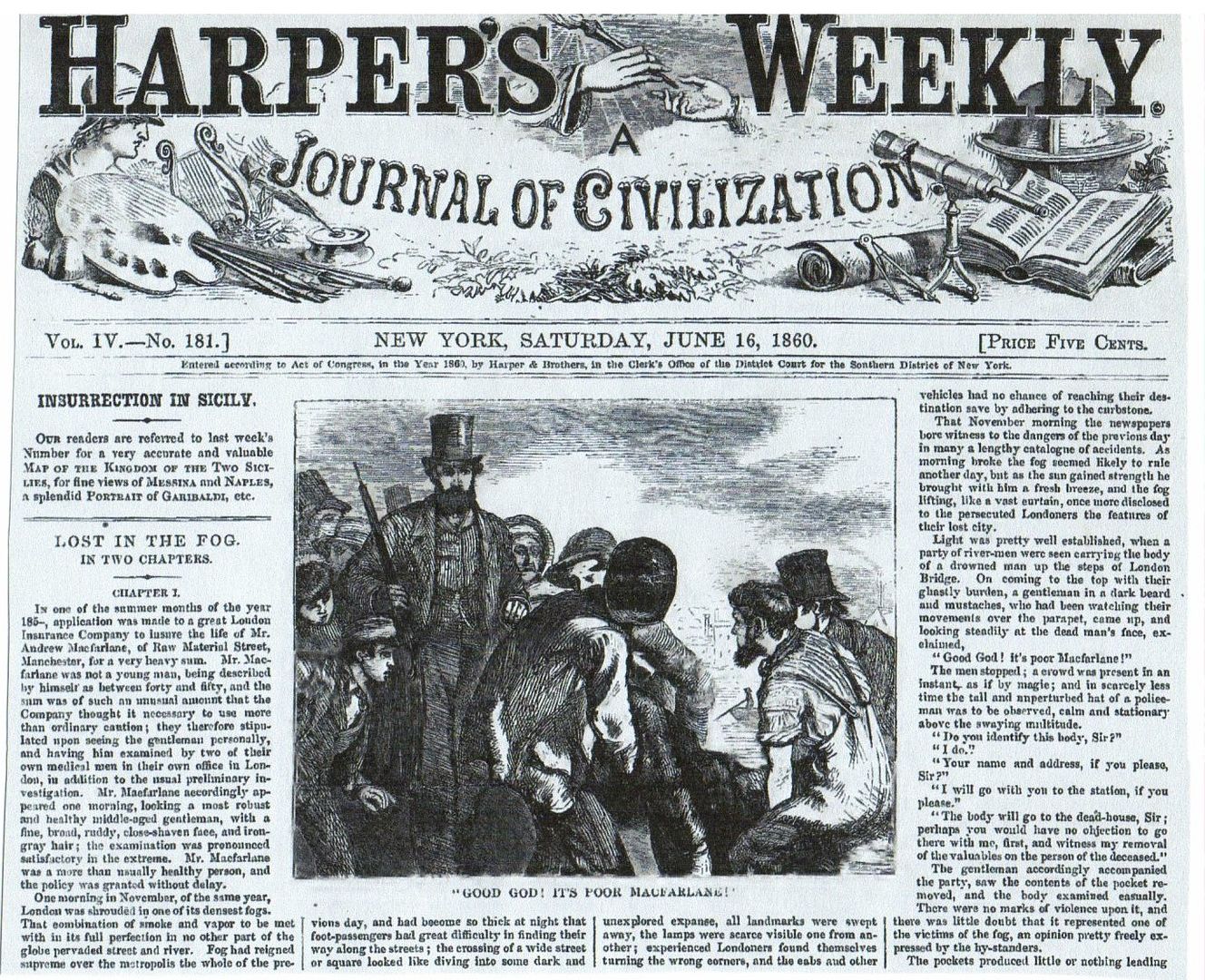
Posted on 06/16/2020 6:35:41 AM PDT by Homer_J_Simpson

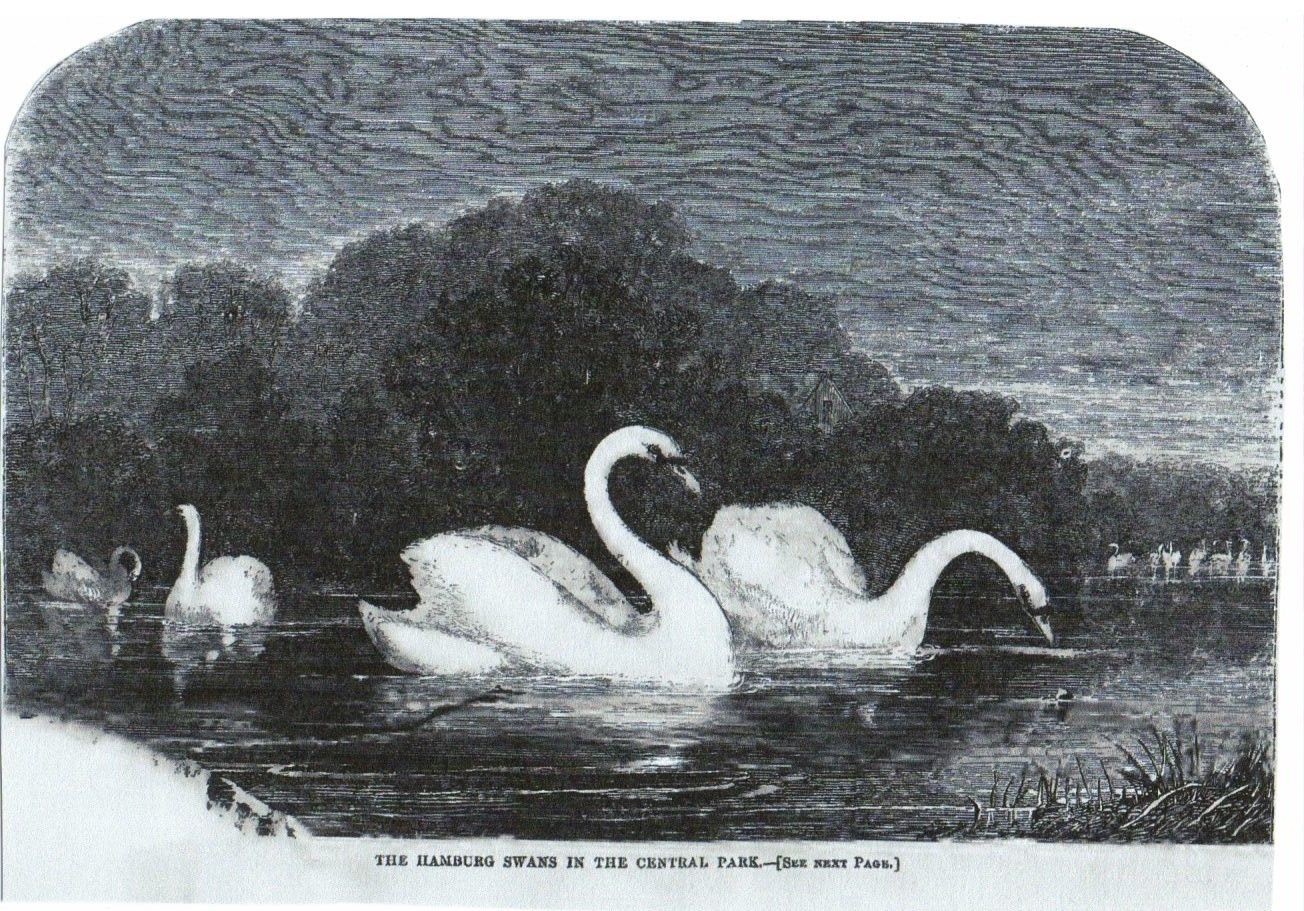
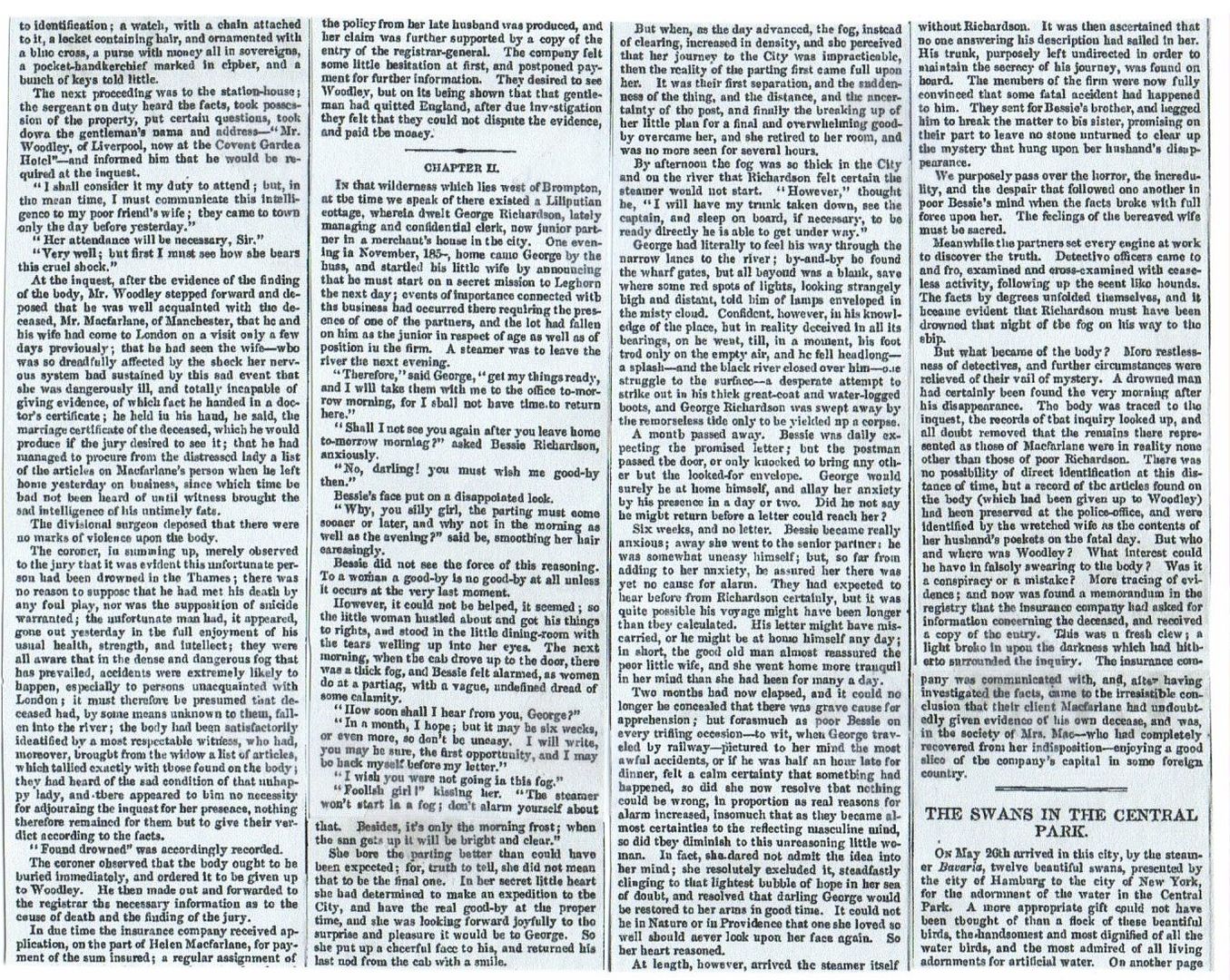
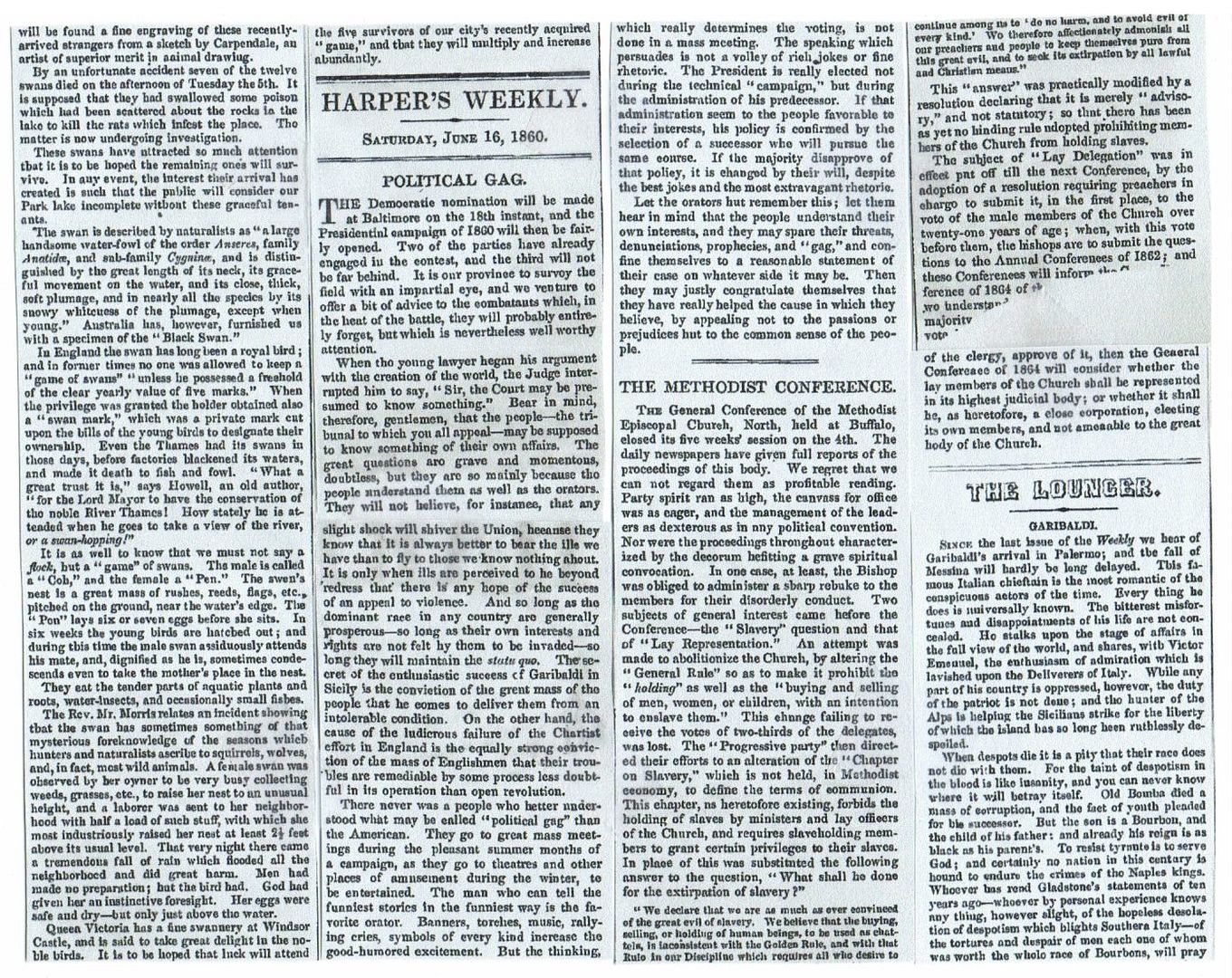
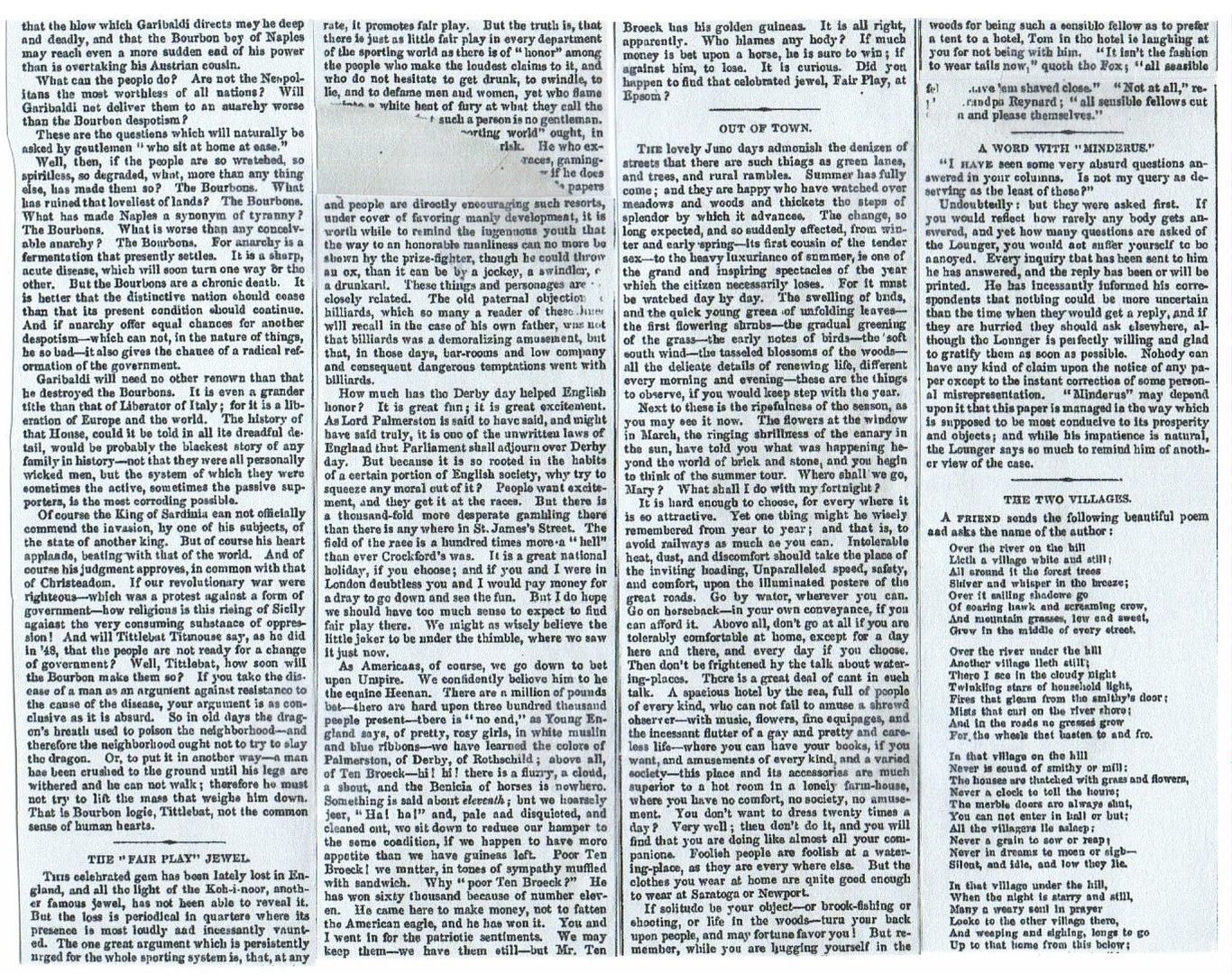
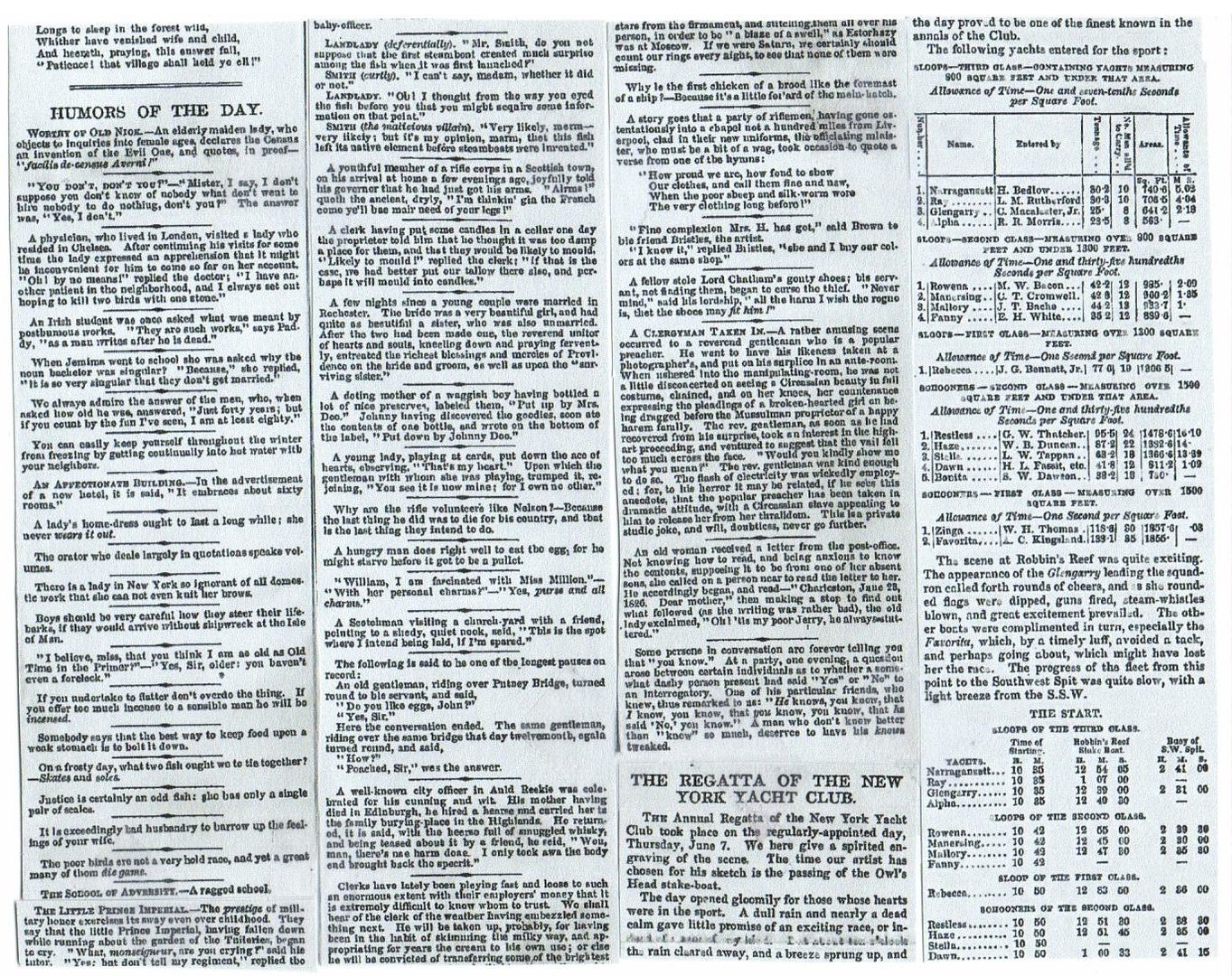
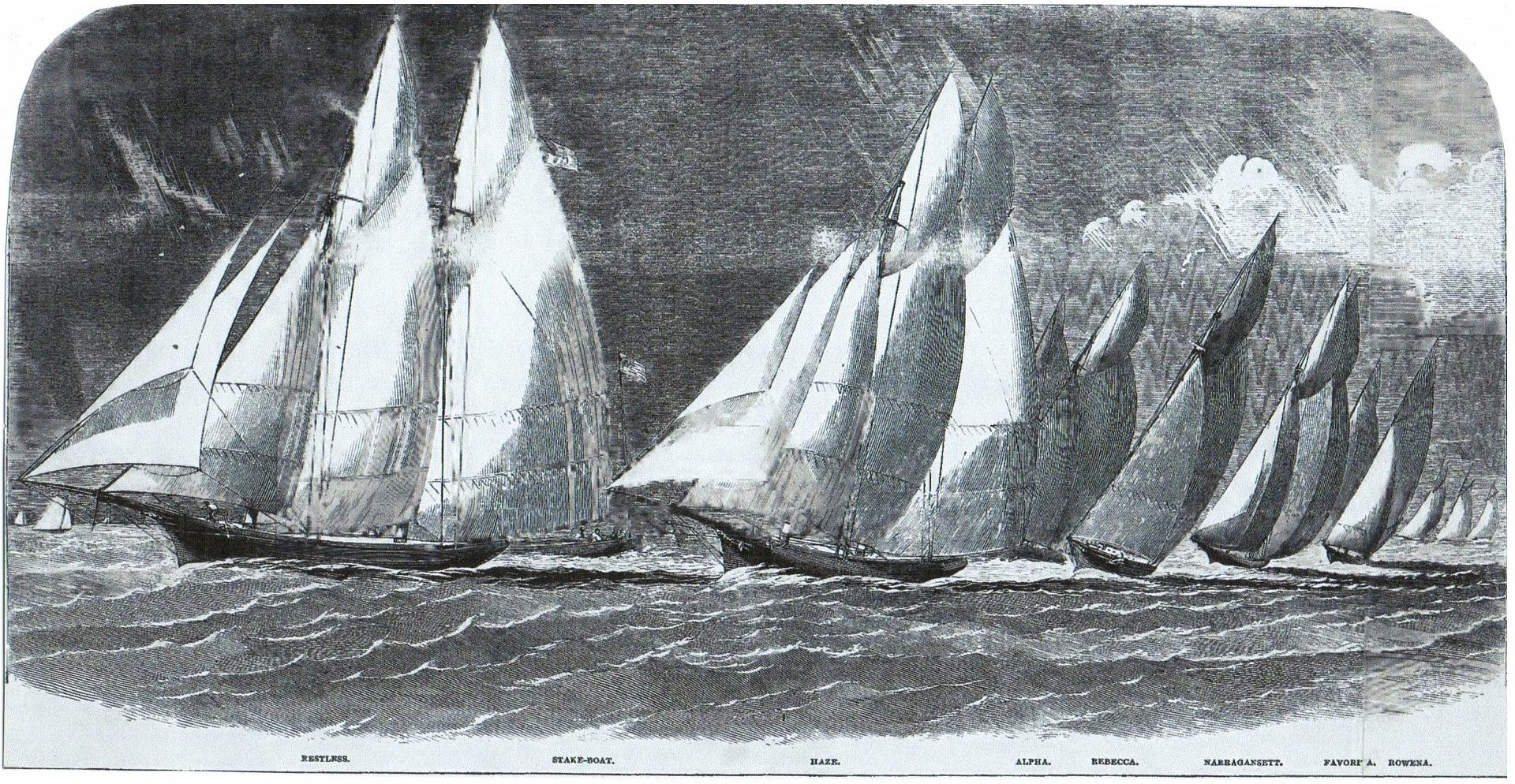
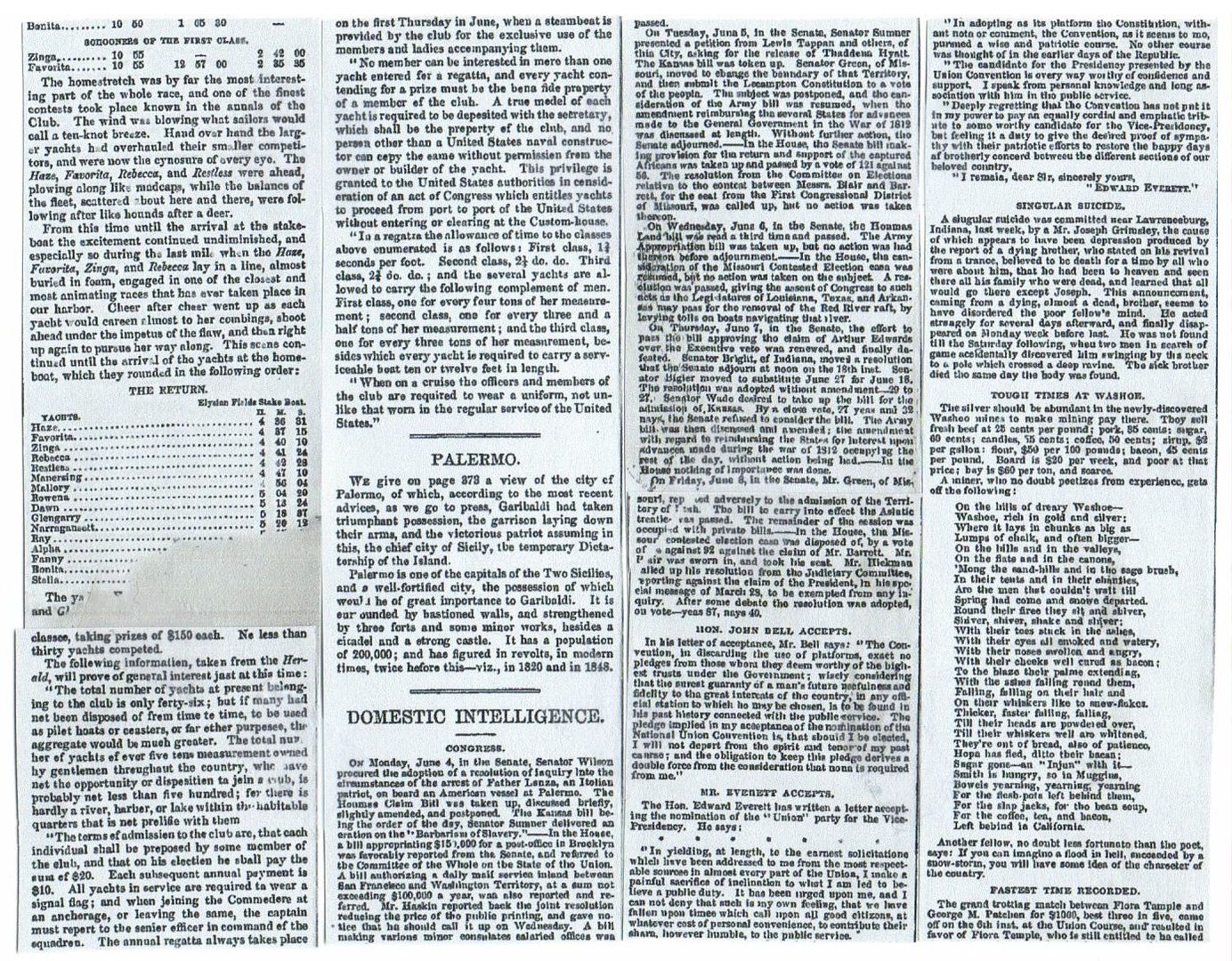
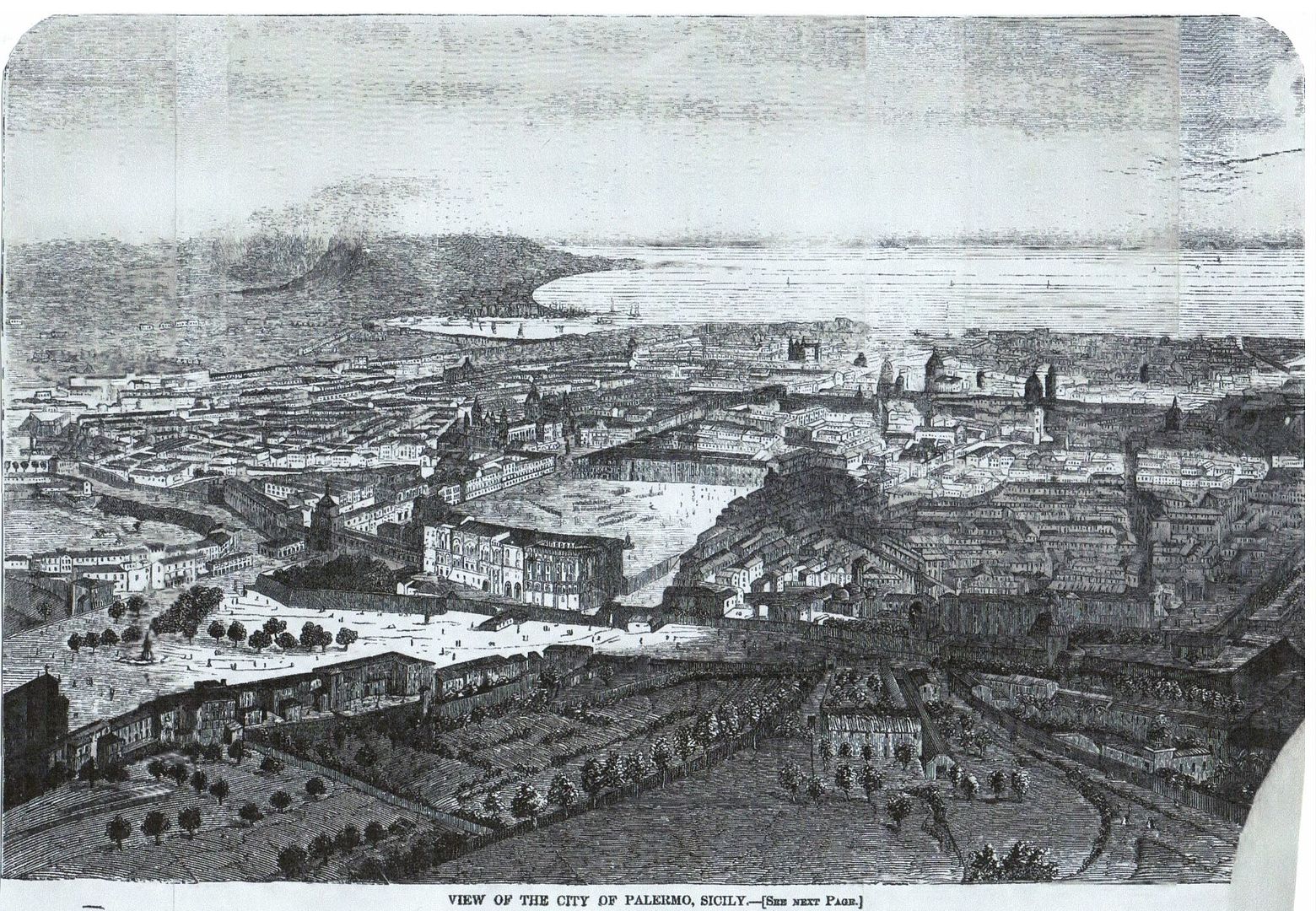
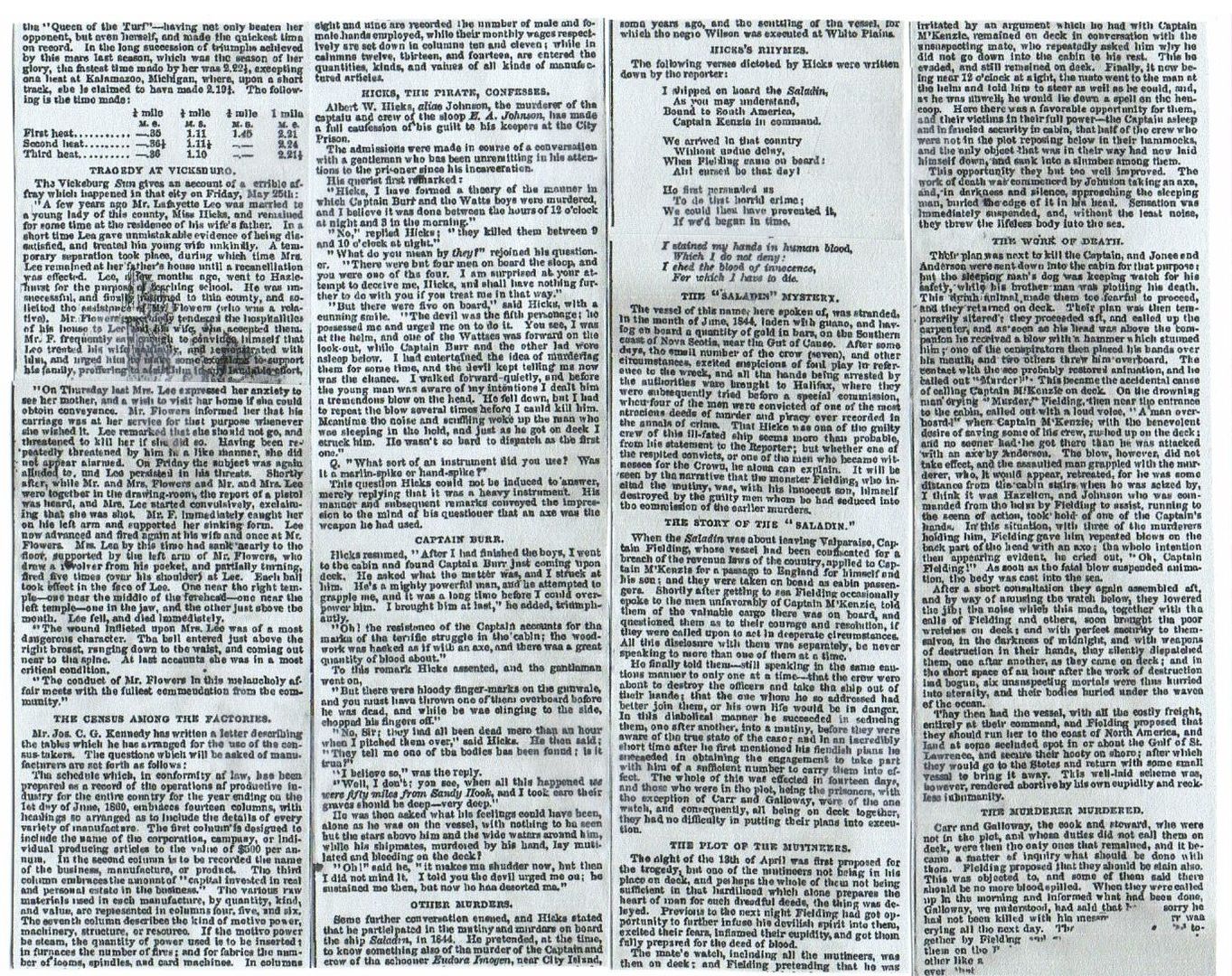
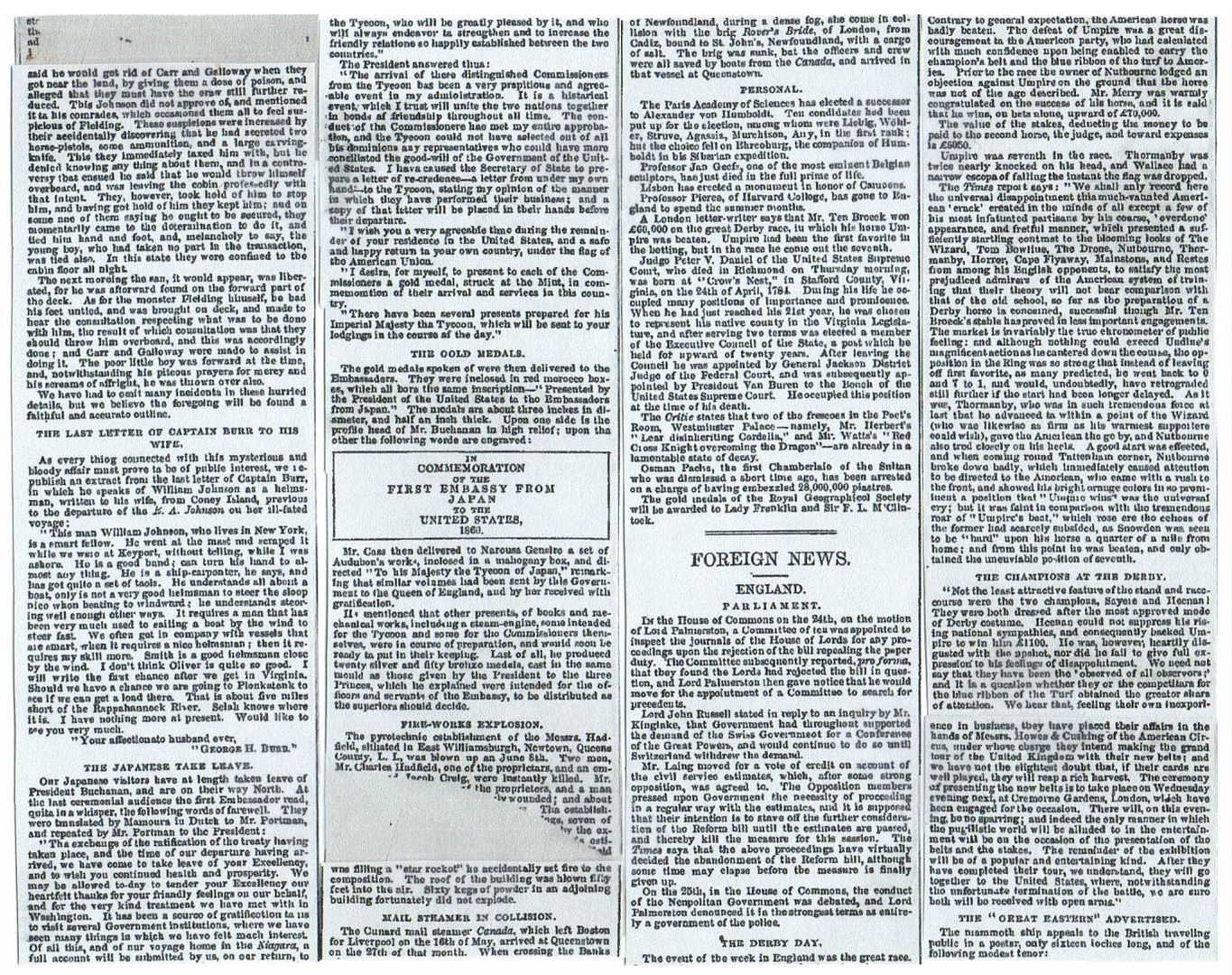
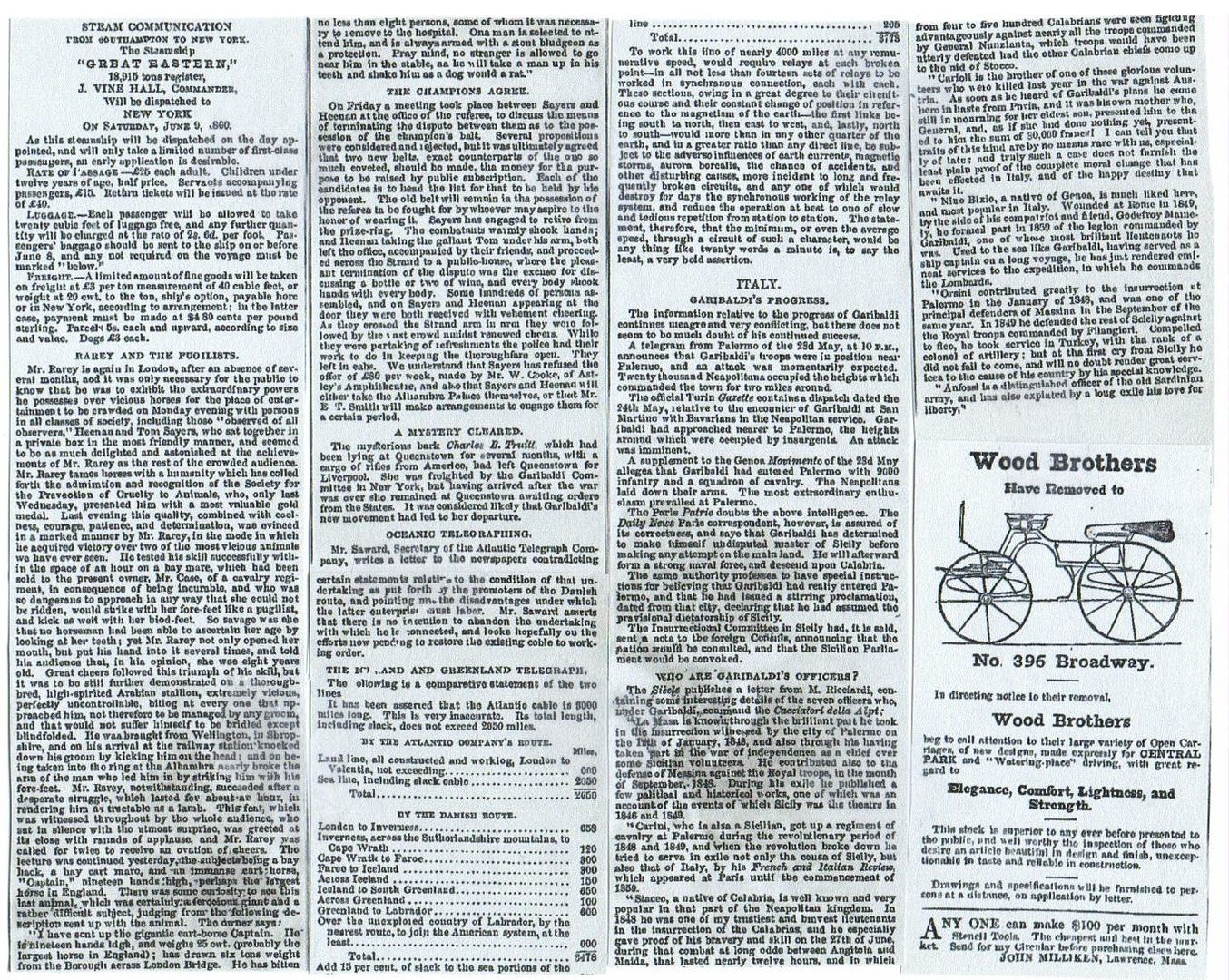
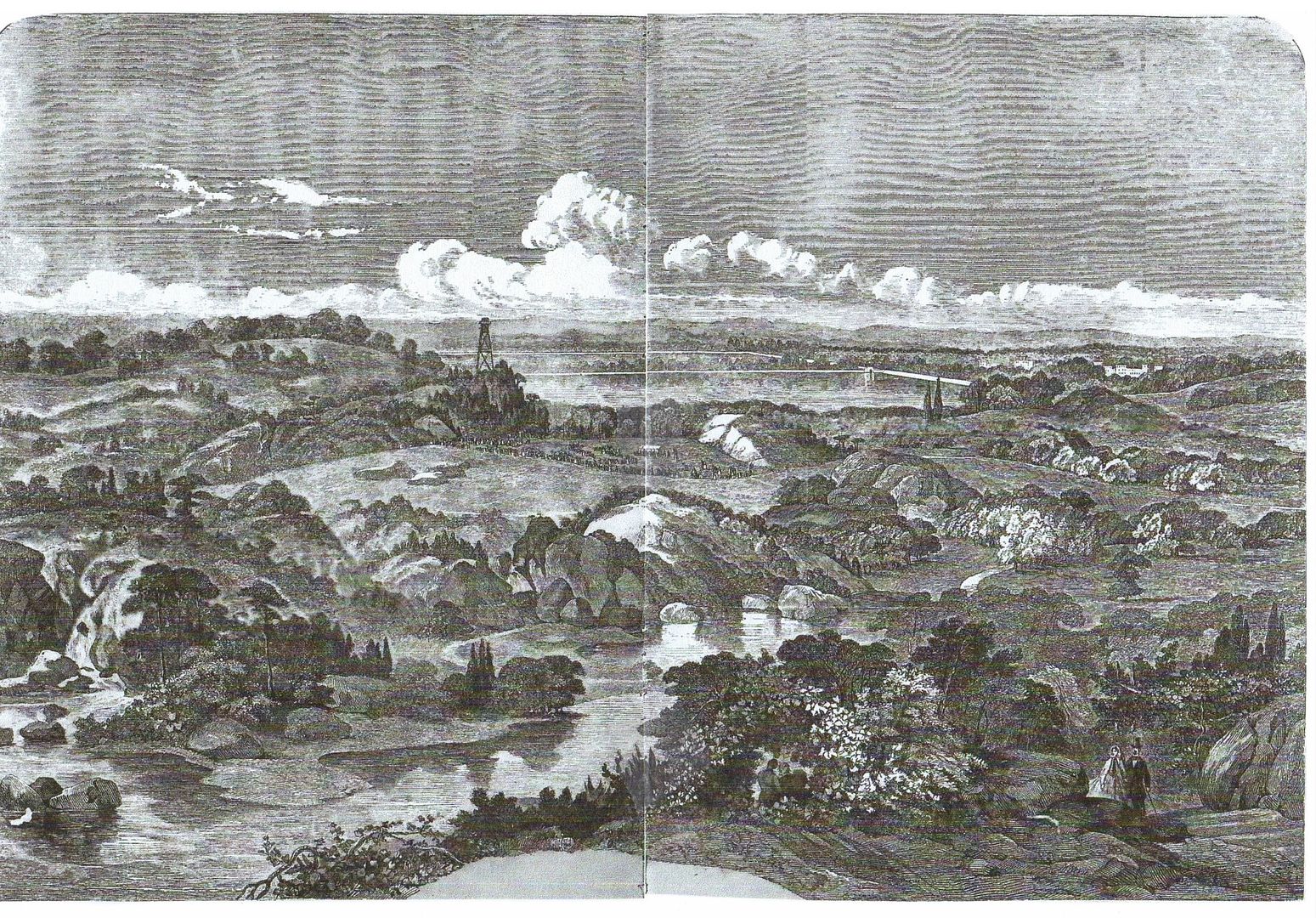
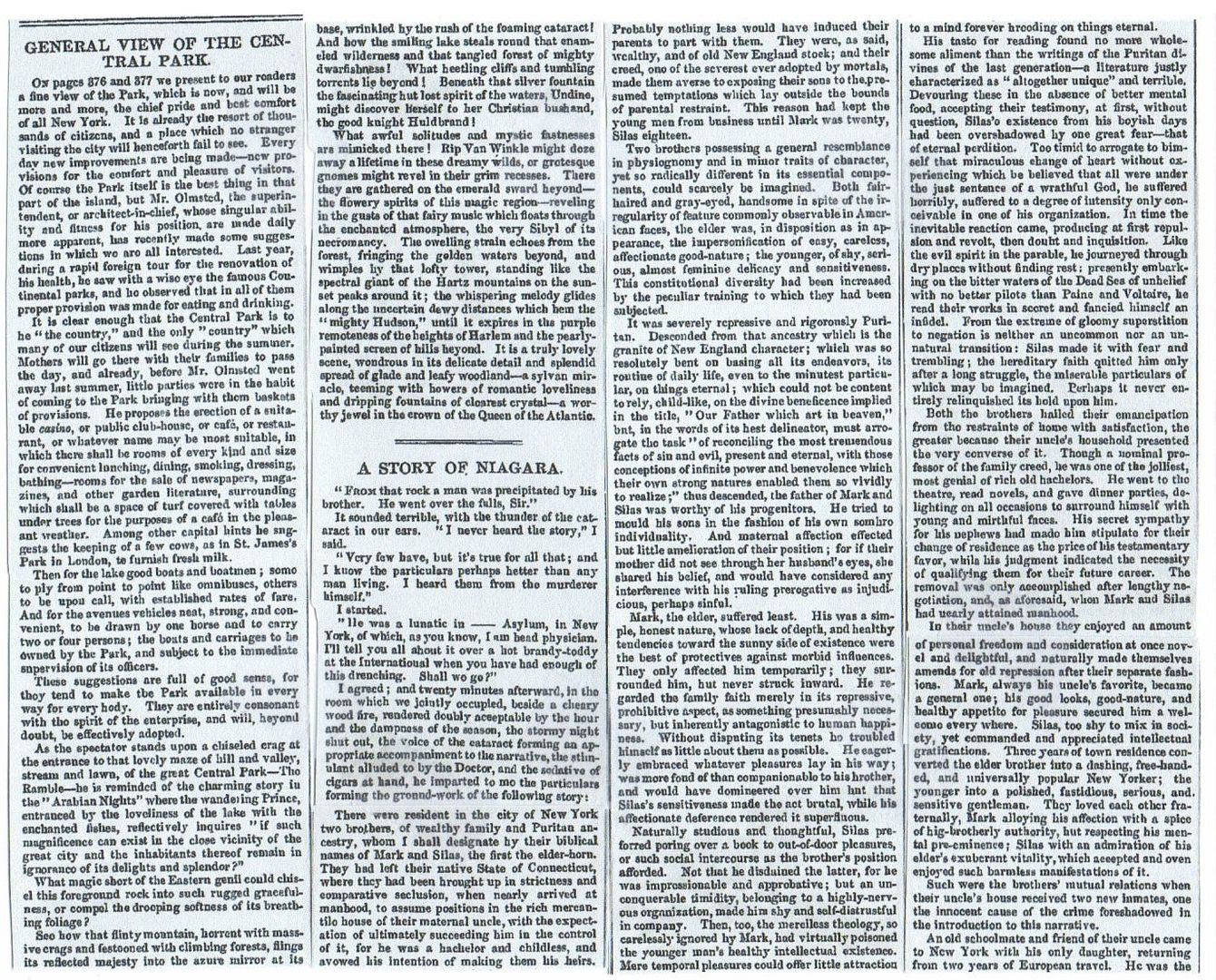
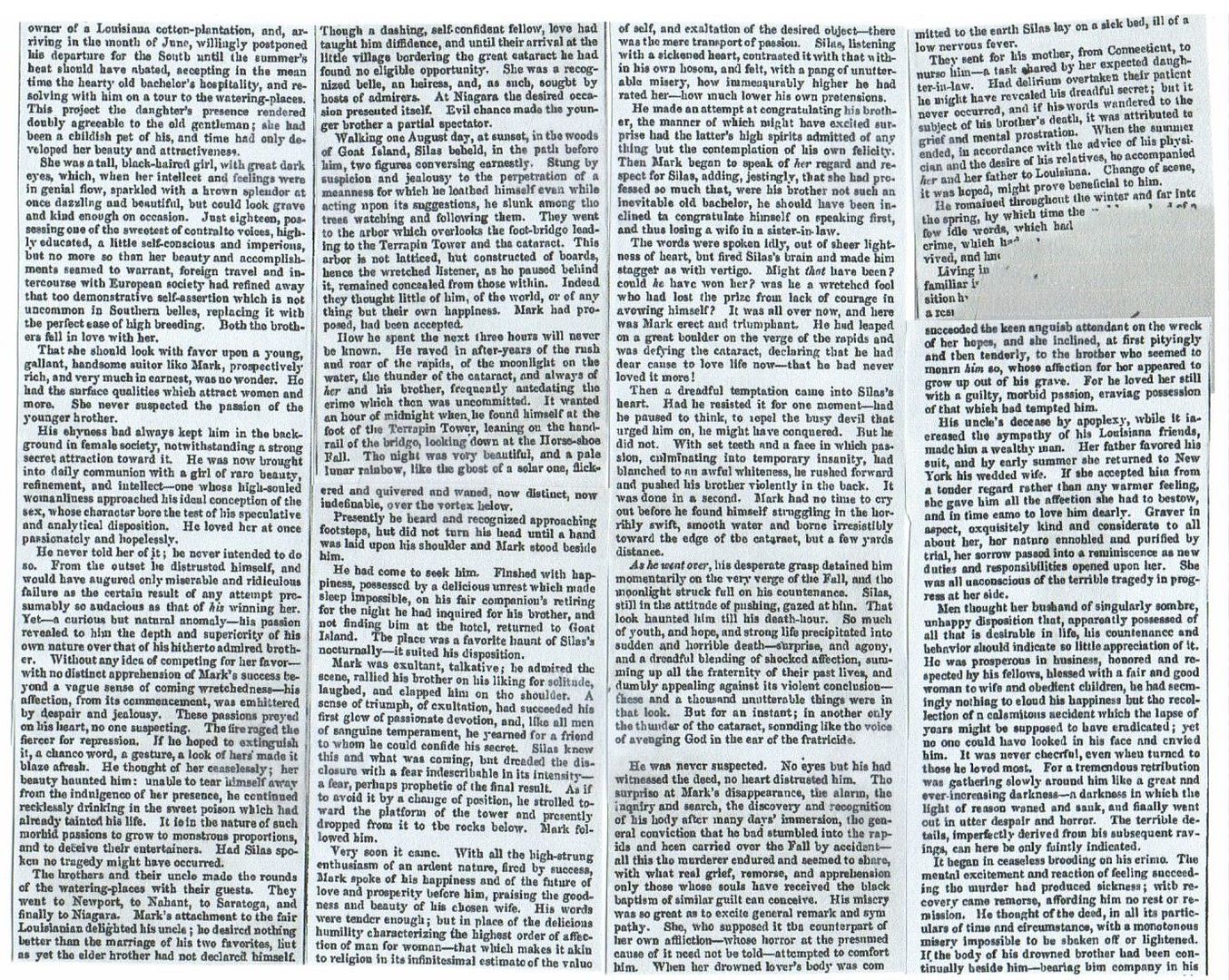
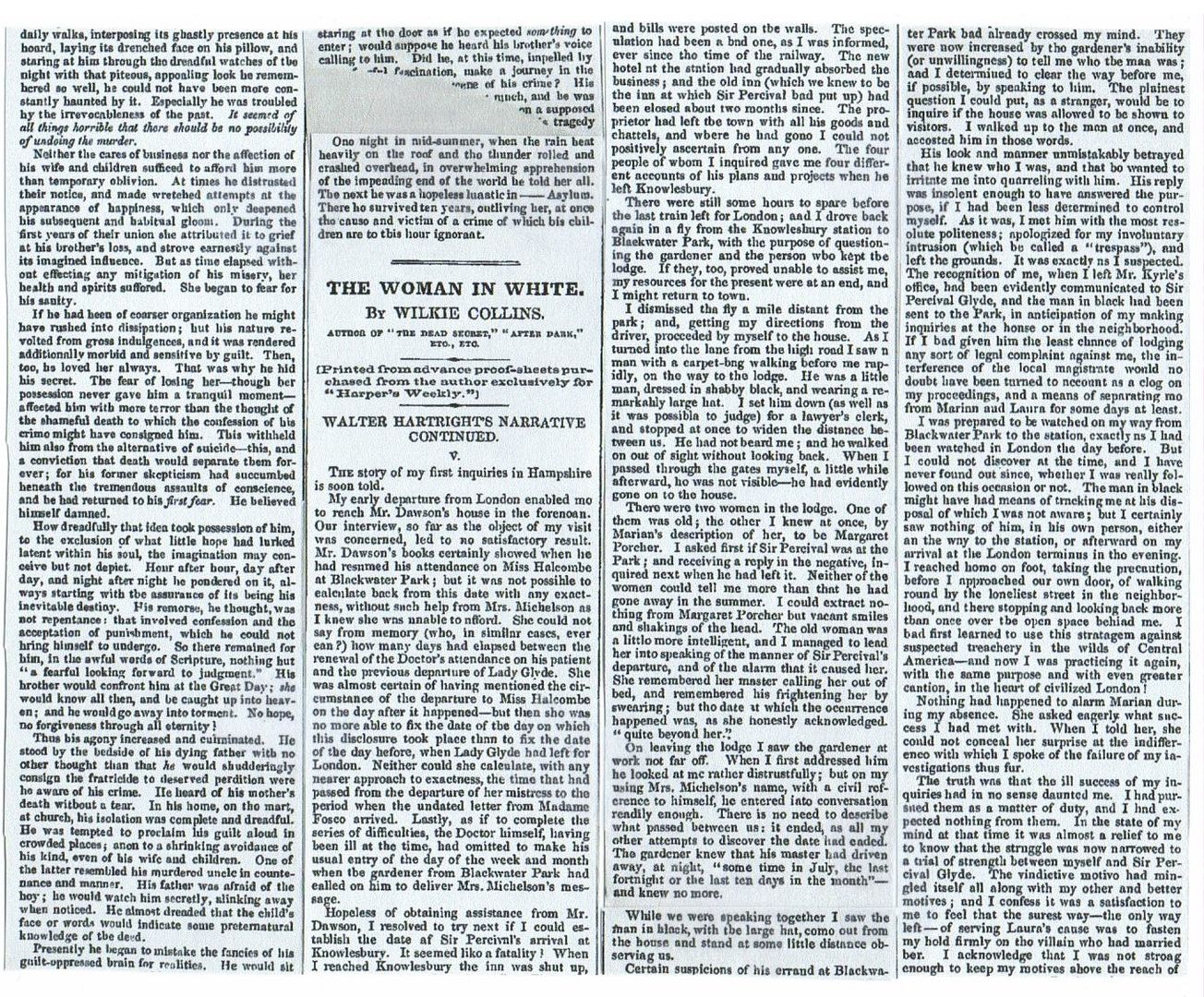
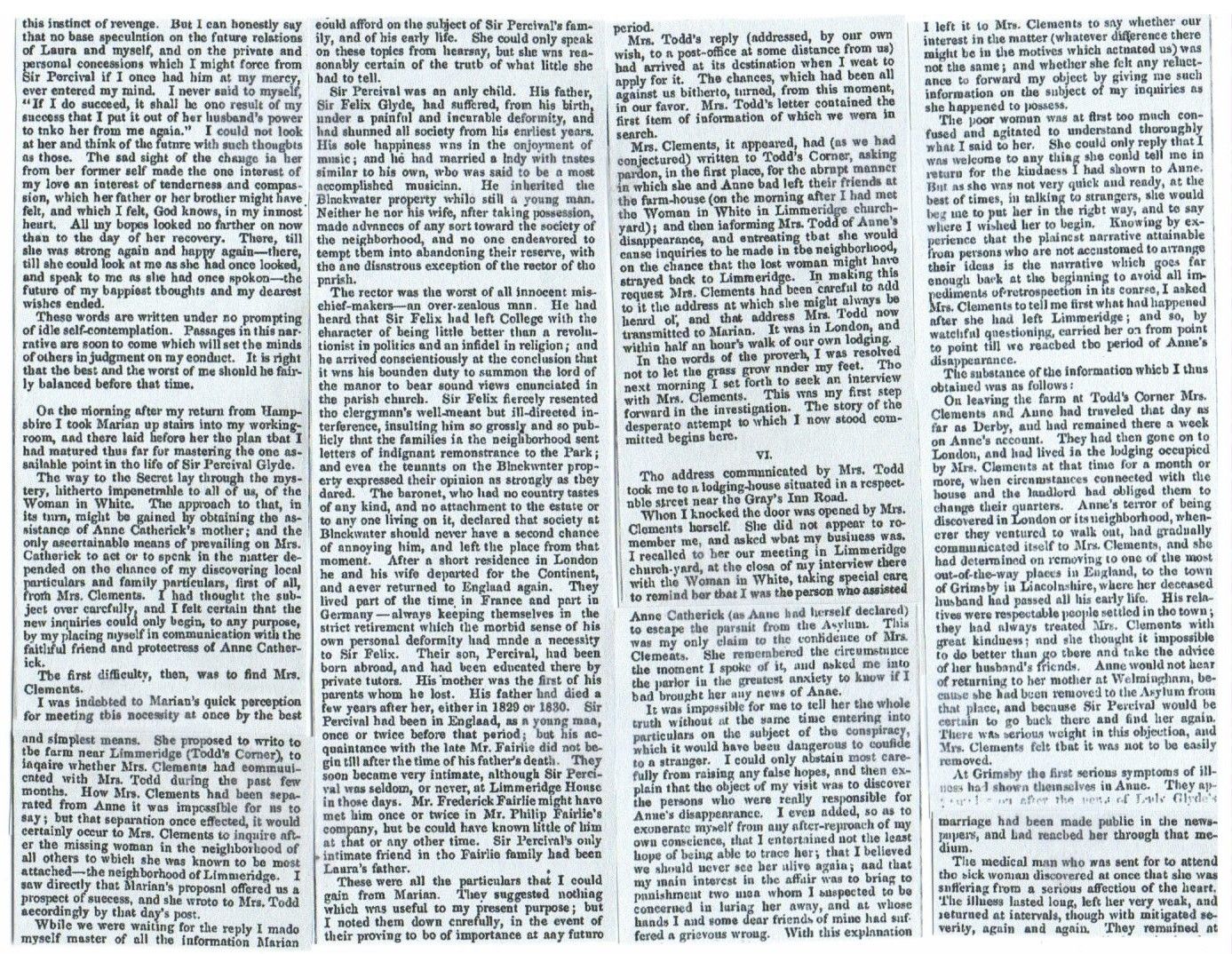
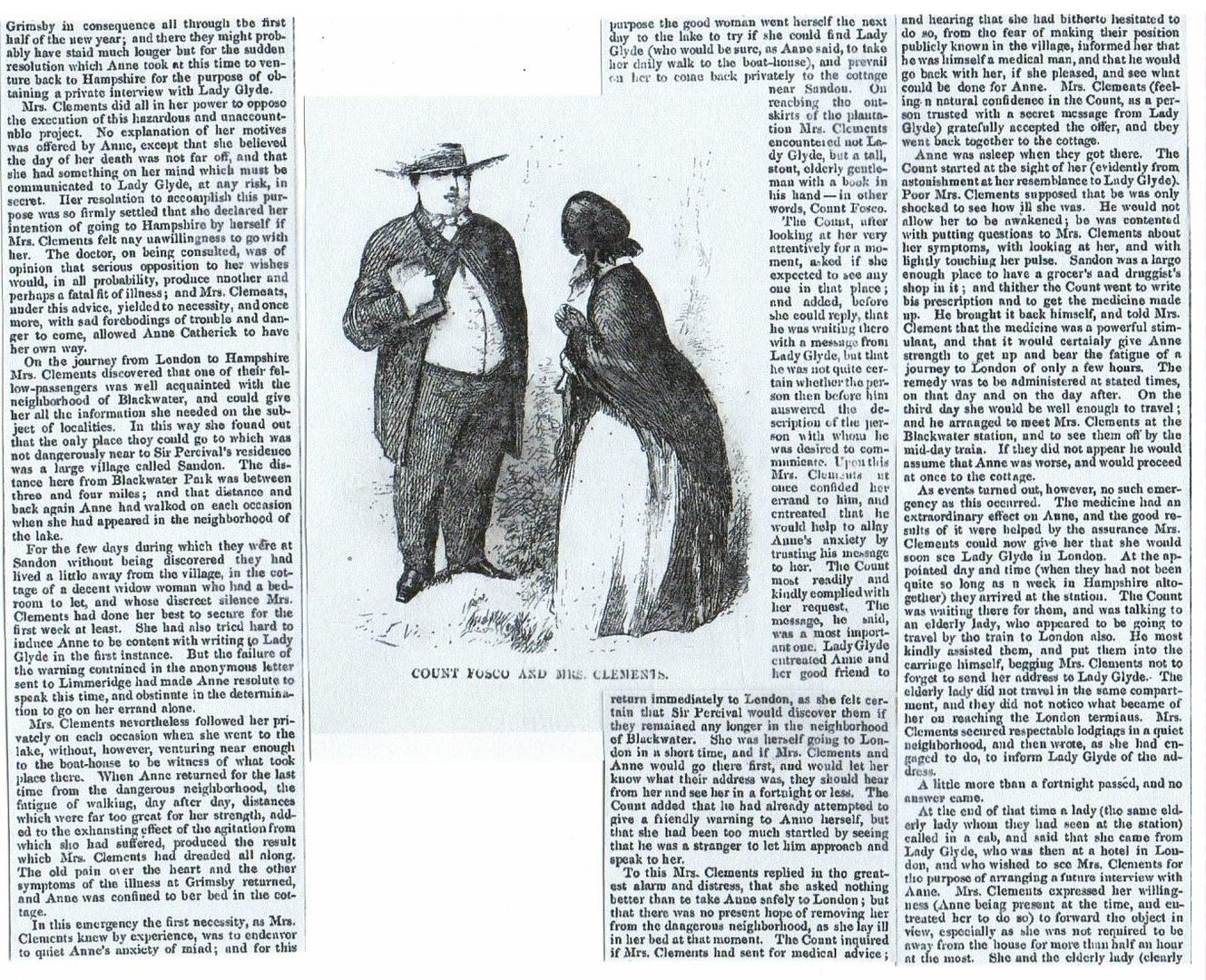
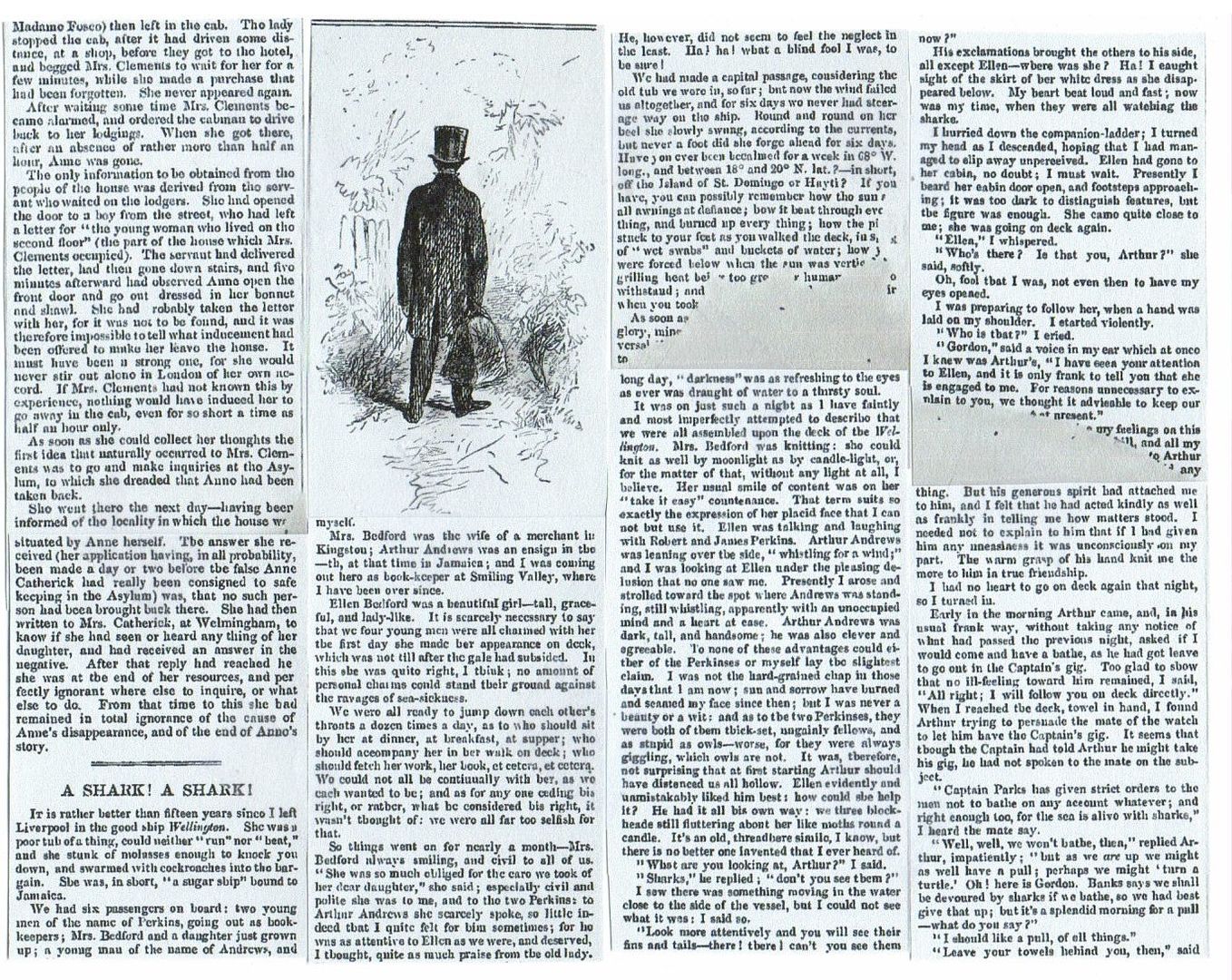
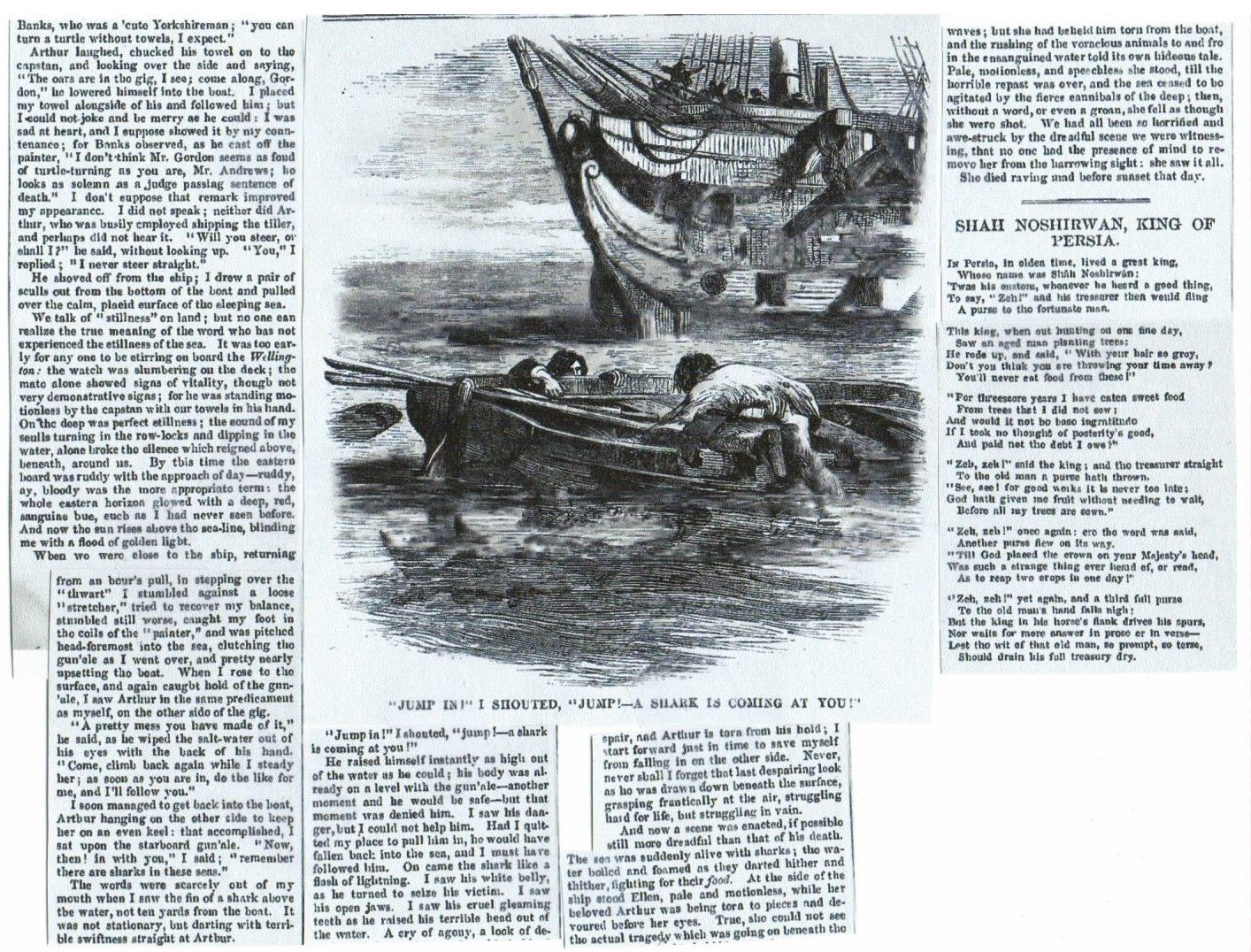
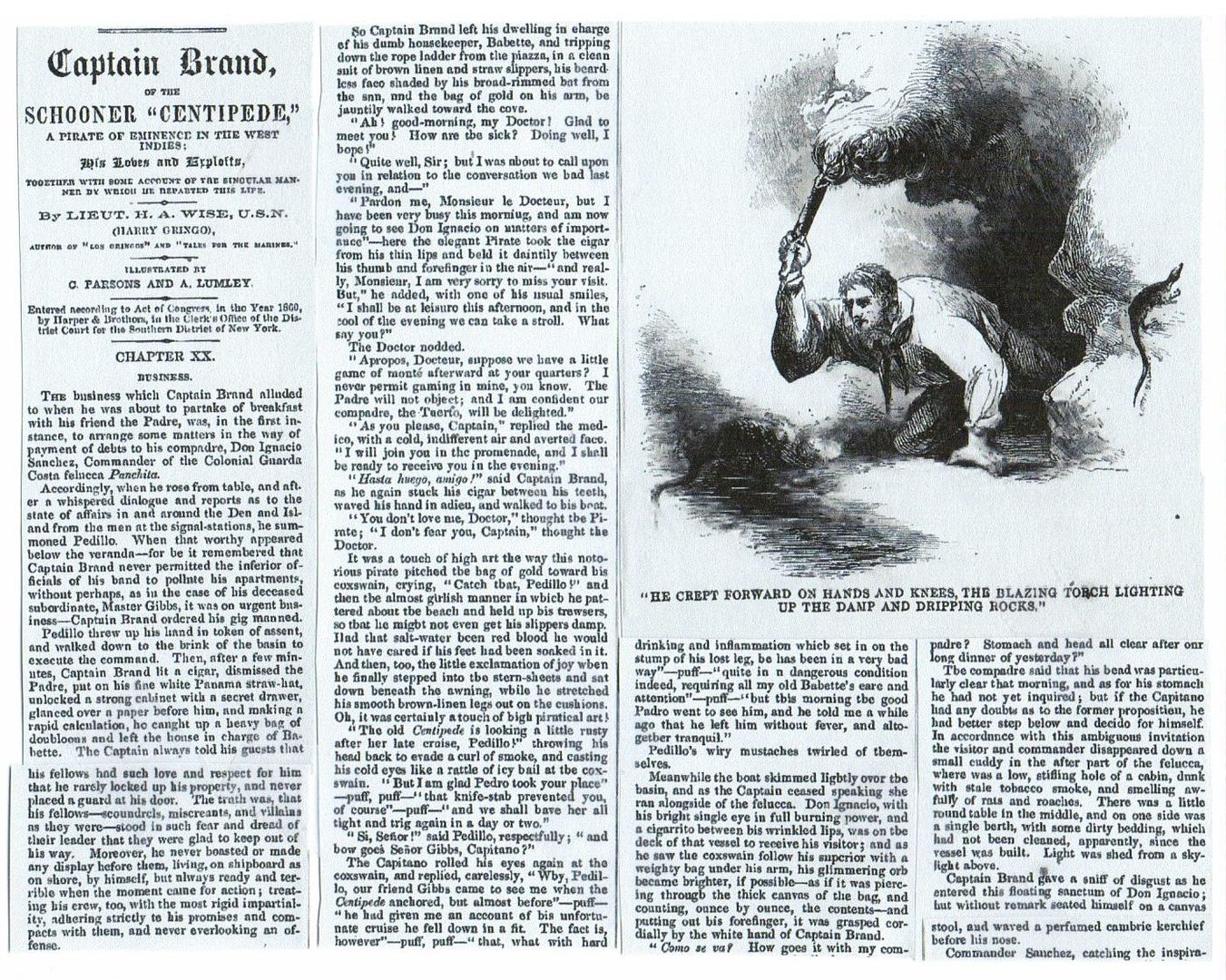
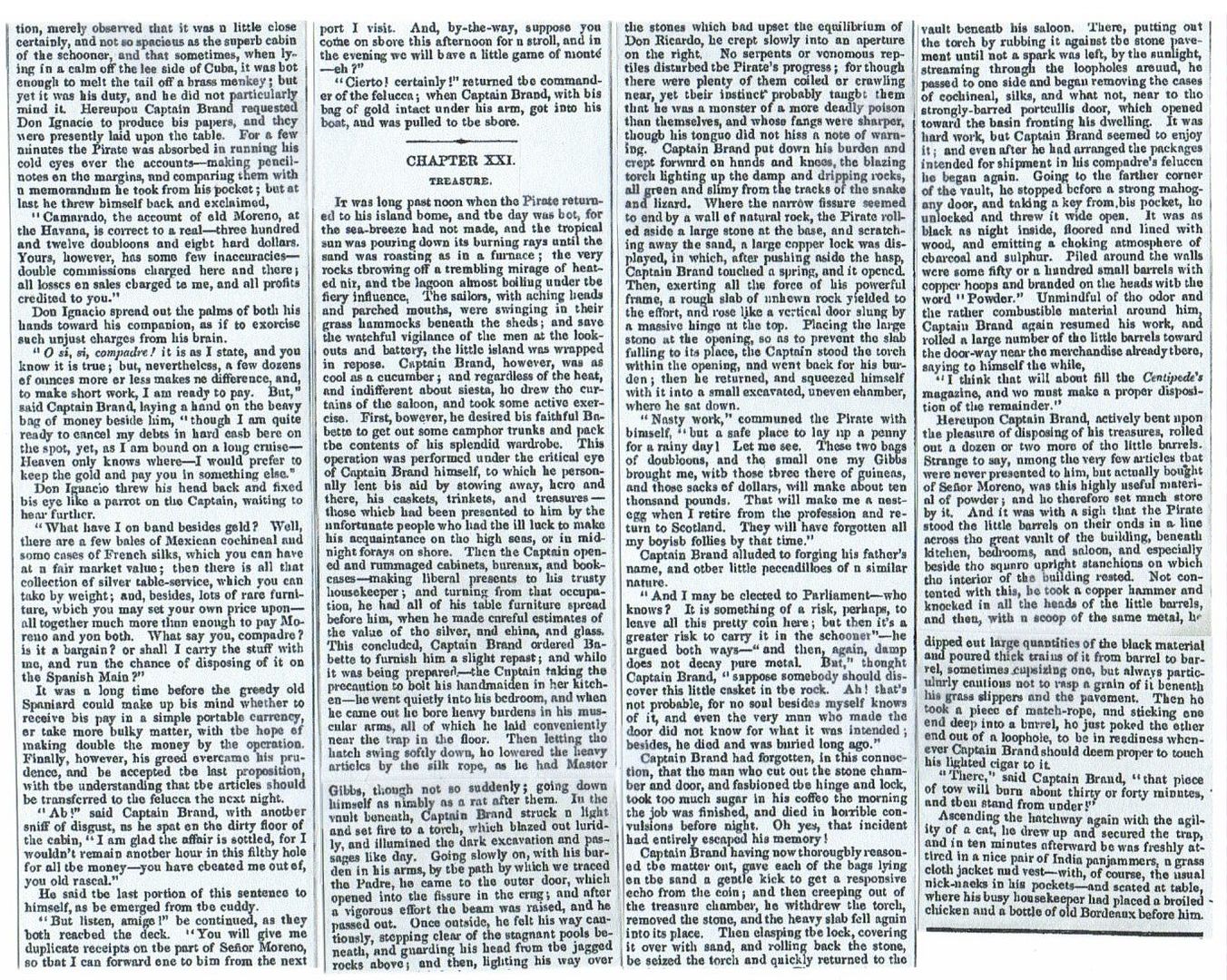
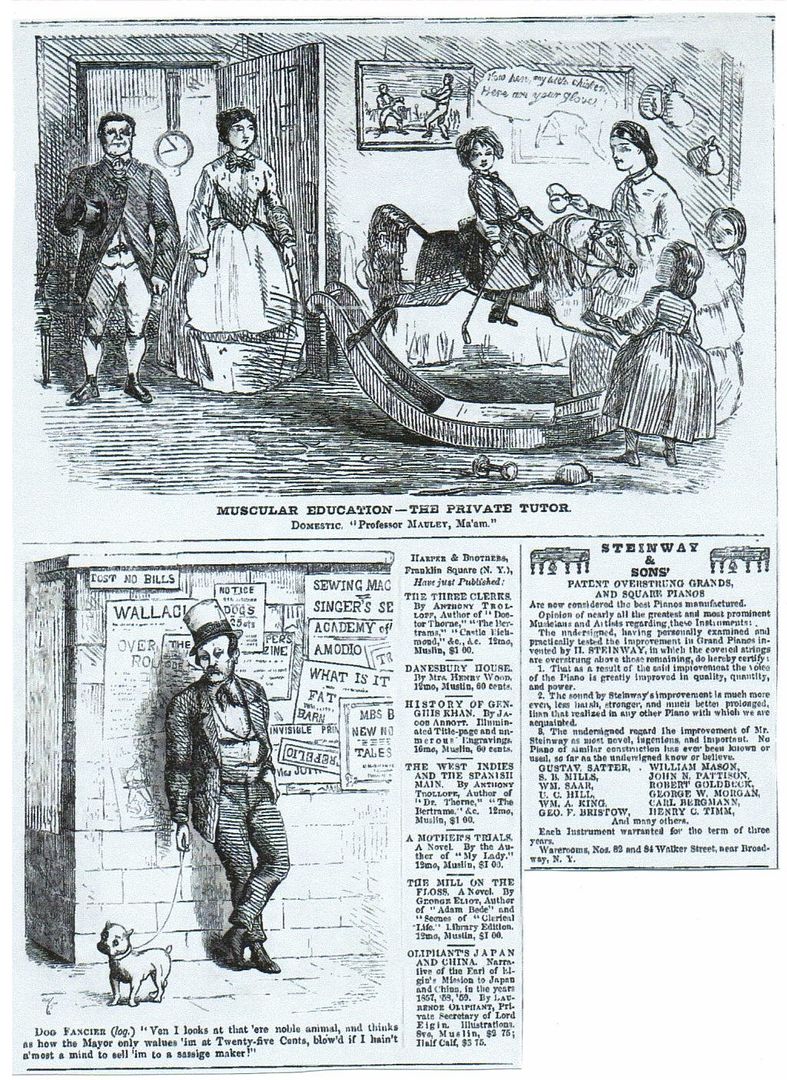
Justice Samuel Nelson had voted with Taney on Dred Scott. He would have been only slightly more popular than Breckinridge in the northern states.
The NYT halfway endorsed Nelson in a June 12 editorial.
https://www.freerepublic.com/focus/f-chat/3854804/posts
Thanks for reminding us, Mr. Buzzkill.
Thanks, BJK. That quote was the first time I had ever seen anything like that about vote fraud and the old time Democrats, and I thought it significant enough to post. And, yes, it did remind me of today's Democrats.
The old time Republicans had their own sort of corruption. Lincoln supporters printed many tickets to the 1860 Republican Presidential Convention and gave them to Lincoln supporters to make it seem like a majority of convention attendees supported Lincoln (Link). After Lincoln became President, the Republicans increased the number of Supreme Court Justices to 10. This had the effect of making it less likely that the Supreme Court would rule against any Lincoln actions. Army troops prevented Democrats from voting in some elections during the Civil War, at least according to Democrat politicians.
No one should blindly accept what any newspaper or TV channel says these days. And the same was true of the old newspapers as well. I posted on Simpson's threads a news item I saw in two or three old newspapers about Lincoln charging off three pairs of boots to Congress back when he was a Representative in the US House. Later I found an article by the John W. Forney, Chief Clerk of the US House, who had searched the old records of the House and found no record of Lincoln charging three pairs of boots to Congress. I posted the Chief Clerk's finding on Simpson's threads.
I did not point out on Simpson's threads that Forney also published a newspaper, The Press of Philadelphia. After Lincoln became president, Forney's newspaper became known as the best source of what the president thought. But that happened in 1861, and we are not there yet in Simpson's threads.
Incidentally, Forney said the following later about the founding of The Press and how Buchanan had caused the disruption of Democratic Party that led to its defeat in the 1860 election (Source: "Lincoln and the Press," by Robert S. Harper, page 110):
Mr. Buchanan had been elected President in the year previous on a clear understanding that he would not allow the slaveholders to make Kansas a slave state by violent means and The Press was started to hold him to that pledge. The message of the President of February 2, 1858, recommending admission of Kansas under the Lecompton constitution, caused that disruption of the Democratic party which two years afterward resulted in its defeat and the election of Mr. Lincoln.

The party, the Constitution, and the Union itself were safe: and yet he himself was no worshiper at the shrine of the Union. “I [rb: Yancey] am no Union shrieker. I meet great questions fairly, on their own merits. I do not try to drown the judgement of the people shrieking for the Union. I am neither for the Union nor against the Union – neither for disunion nor against disunion. I urge or oppose measures upon the ground of their constitutionality and wisdom or the reverse.”
Sounds like Yancey was a strong adherent of the Constitution. A different set of words by Yancey were reported by the Baltimore American newspaper on June 21, 1860 and quoted in the Richmond Enquirer on June 22, 1860. Yancey made a short speech to a large crowd the evening of June 20 in Baltimore. I will highlight Yancey's name in the following account from that evening (column 4 in the Richmond Enquirer newspaper):
June 22, 1860. Richmond Enquirer, Richmond, VA.
[From the Baltimore American, June 21.]
The Demonstrations and Monument Square Wednesday Night. [June 20, 1860]
The climax of excitement into which the opposing parties in the Convention and their outside adherents have worked themselves up during the last twenty-four hours, sought expression Wednesday night through the gatherings in Monument Square, and the crowd was larger, the speaking more earnest, and the spirit of rivalry and opposition more determined than during any of the previous night demonstrations. The early adjournment of the Convention left the throng at liberty, and soon after six o’clock the Square begin to fill up.
Shortly before eight o’clock the bands accompanying the delegations commenced to enliven the crowd by playing numerous patriotic airs, which had the effect of bringing together a larger gathering than had assembled on any evening since the commencement of the Convention.
The larger portion of the crowd congregated in front of the Gilmor House, and repeated calls were made for Mr. Yancey of Alabama. That gentleman, however, did not respond, and the crowd evidently wanted him, or nobody else.
The Douglas men in the house adjoining appeared annoyed at this procedure, and determined, if possible to counteract it. Hence, in a few moments, there was seen approaching their quarters the banner of the Keystone Club, borne aloft in the air so as to be visible to all, and their band playing at the same time an inspiring air. This expedient did not, however, meet with much success, as the crowd in front of the Gilmor House still called for Yancey. The Douglas section was, however, warmly applauded by its immediate adherents stationed near the entrance to the quarters of the club.
THE SPEECHES.
At this stage of affairs the Douglasites introduced Mr. Powell, of Pennsylvania, who entered into a history of Judge Douglas’ career, and was of the opinion that he was in every way qualified for the Presidential chair.
Mr. Brook, of Virginia, was holding forth at the same time from the balcony of the Gilmor House, and was giving a somewhat different view of the objects and aims of the Democratic party than given by the gentleman from Pennsylvania. Both speakers were alternately applauded by their different adherents and were evidently convinced that their arguments were entirely correct.
These gentlemen were followed by numerous speakers on both sides, but the noise and confusion prevailing rendered it impossible for any one to understand what they were saying. Both parties made as much commotion as possible -- Among the speakers were Mr. Wallach (anti-Douglas,) of Washington, Mr. Merrick (Douglas,) of Illinois and Mr. Hague of Virginia. The latter gentleman (anti-Douglas,) made a powerful address, and was loudly applauded during his remarks. His definition of Southern principles and Southern rights met with great approbation, if the applause of his hearers is to be taked [rb: "taked" was what appeared in the paper] as a criterion.
ADDRESS OF MR. YANCY, OF ALABAMA
At this time, the larger portion of the crowd were in front of the Gilmor House, and the cheering and calls for Mr. Yancey, of Alabama, were loud and prolonged. That gentleman finally appeared on the balcony, and was greeted with tremendous applause. He spoke in substance, as follows.
My Fellow Citizens -- In answer to your repeated calls, not only of this evening, but of previous ones, I appear before you to tender you my heartfelt thanks for the compliment thus conferred upon me. I do not intend to make a speech. [Cries of “Go on, go on.”] I intend to reserve what little strength I have to exert hereafter in defence, if required, of Southern rights. [Loud applause, and cries of “Go on.”]
It has been said that I am a traitor to the South, that I seek to overturn the Constitution, and create a division of the Democracy. The man who says that I am disloyal to the South or to the Union, that man, I say, lies in his teeth, and I will tell him so. [Applause.] No, my fellow citizens, it is no war that I or my Southern brethren are carrying on against the Constitution or the Union. I oppose a fiction, from whatever source it may arise, be at a Douglas one, or any other. I will not favor Stephen A. Douglas, or any other man who panders to a section of the party, to gratify selfish views, and for political advancement. [Loud applause.] I am opposed to this Douglas faction and not to the Constitution. [Applause.]
I am here with my Southern brethren, endeavoring to uphold the Constitution as it is, and to protect the interests of the South. I am ready to do it here, and if occasion requires, on Southern ground. [Applause.] I was at Charleston, and endeavored there only to defend the Constitution from the assaults of a particular faction, and when I saw that it was violated I withdrew [Applause.] I have been called some queer names since then, and the Democracy of the South, opposed to this Douglas faction, have been well abused; but I will say now that never will I yield a point from the stand which I have taken in defence of the constitutional rights of the South. [Applause.] But, my fellow-citizens, I promised to make no speech, and I will conclude by thanking you most cordially for the tremendous reception with which I have been received. [Tremendous cheering.]
Good stuff. I linked to it on my post from today on the American Civil War facebook group.
It sounds to me like the "fly game" is the game in which fly balls are hit. Homer, you may have just found baseball history!
Disclaimer: Opinions posted on Free Republic are those of the individual posters and do not necessarily represent the opinion of Free Republic or its management. All materials posted herein are protected by copyright law and the exemption for fair use of copyrighted works.